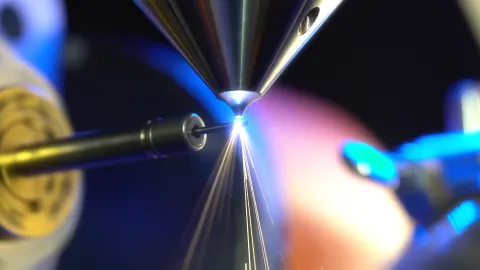European Projects
The european research framework 2020 Work Programme (2014-2020) is an essential tool for research funding. This programme provides funding for research excellence (ERC), projects related to societal challenges and industrial leadership.
The FEMTO-ST Institute participates in many projects funded by this program. The projects coordinated by FEMTO-ST staff are briefly presented below.
ERC uNIQUE
Nanophonics for Quantum Information Processing Project
Over the past thirty years, the remarkable technological advances in microfabrication processes have thrust mechanical vibrations into the quantum realm. The intrinsic coherence of mechanical motion and the capability to couple it to other physical degrees of freedom hold promises of scalable hybrid quantum platforms. But mechanical vibrations are also powerful conveyors of physical information. They are ubiquitously used in wireless communication systems, where bulk and surface acoustic wave (BAW and SAW) devices are prevalent. Their high achievable quality factors and frequencies, as well as their low propagation speed, are appropriate ingredients for information processing: they are synonymous of storage and delay. Recent works have shown that SAW could be operated in the single-phonon regime, potentially behaving as a quantum bus between solid-state qubits. The proposed approaches, however, do not yet take advantage of wave propagation management at the substrate surface itself.
The uNIQUE project aims at the development of an all-electro-acousto-mechanical quantum information platform exploiting the full potential offered by surface acoustic waves in the single-phonon regime, and by mechanical resonators beyond the standard quantum limit. It adopts a yet unexplored approach at the crossing of phononics, nanomechanics and quantum acoustics to yield a fully coherent mechanical playground that can be used at the interface with other solid-state or photon qubits or as an independent quantum signal processing system. It will exploit the substrate surface to prepare and transfer nonclassical states of motion of surface-coupled phononic resonators with the utmost ambition to encode the state information in a travelling single-phonon, allowing remote entanglement. This platform will allow manipulating quantum states in exceedingly compact systems driven by a sheer radio-frequency signal.
uNIQUE is a 5-year project (2020-2025), with a budget of 2 million euros, funded by the European Research Council (ERC). The project is led by sarah.benchabanue [at] femto-st.fr (Sarah BENCHABANE).
ERC PULSAR
Pushing ultrafast laser material processing into a new regime of plasma-controlled ablation
Ultra-intense femtosecond laser pulses promise to become a fast, universal, predictable and green tool for material processing at micro and nanometric scale. The recent tremendous increase in commercially available femtosecond laser energy at high repetition rate opens a wealth of novel perspectives for mass production. But even at high energy, laser processing remains limited to high-speed scanning point by point removal of ultra-thin nanometric layers from the material surface. This is because the uncontrolled laser-generated free-electron plasma shields against light and prevents reaching extreme internal temperatures at very precise nanometric scale.
PULSAR aims at breaking this barrier and developing a radically different concept of laser material modification regime based on free-electron plasma control. PULSAR 's unconventional concept is to control plasma generation, confinement, excitation and stability. An ambitious experimental and numerical research program will push the frontiers of laser processing to unprecedented precision, speed and predictability. PULSAR key concept is highly generic and the results will initiate new research across laser and plasma material processing, plasma physics and ultrafast optics.
PULSAR is a single partner, 5 years, 2M€ project, started in July 2016 and funded by the European Research Council, led by Francois Courvoisier (Consolidator Grant ERC-CoG-682032).
Contact : francois.courvoisier [at] femto-st.fr (François COURVOISIER)
Personnal website : http://members.femto-st.fr/francois-courvoisier/en
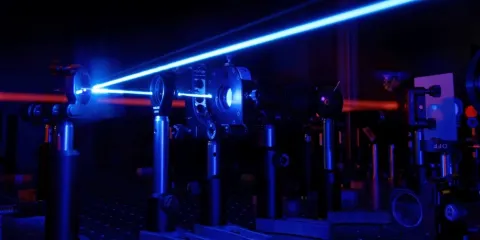
SSUCHY project
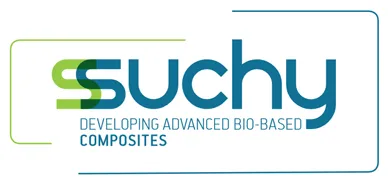
Sustainable Structural and Multifunctional Biocomposites from Hybrid Natural Fibres and bio-based polymers
The project is positioned on the development of composite constituents, based on a renewable resource (i.e. biopolymers and plant fibre reinforcements) for the development of multifunctional recyclable and/or biodegradable bio-based composites with advanced functionalities for applications in transportation (ground transportation and aerospace) and a high value market niche (acoustic and electronics). It is dedicated to the development of specific concepts, technologies and materials to achieve a complete value chain and prove the principle at the scale of product demonstrators.
Expected impacts
- To set the basis and validate new bio-based constituents for composites;
- To propose new composite structures and products based on these bio-based constituents and demonstrate their advanced functionalities at the scale of demonstrators
This project gathers 17 partners (ten universities and research performing organisations, three SMEs, three industries and one cluster). It will last 48 months, from the 1st of September 2017 to the 31st August 2021, with a global budget of €7,411,150, including €4,457,195 grant from the European Union (for the University: global budget €880,702.25, including €664,390 grant).
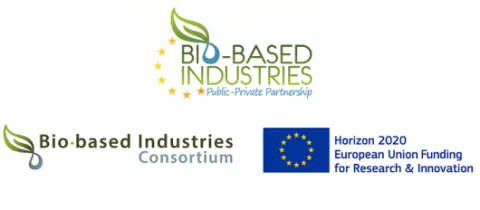
For more information, please visit SSUCHY’s website https://www.ssuchy.eu/ or European Commission’s website: http://cordis.europa.eu/project/rcn/210573_en.html
ITN / ENHANCE
ENHANCE : 2017-2021
MSCA-ITN-ETN - European Training Networks
Piezoelectric Energy Harvesters for Self-Powered Automotive Sensors: from Advanced Lead-Free Materials to Smart Systems
Total Funding Amount: EUR 3,382,787.16
Coordinator: A. Bartasyte (University of Franche-Comté)
Beneficiaries: University of Franche-Comté (FR), INSA Lyon (FR), Grenoble INP (FR), Cedrat Technologies (FR), Imperial College London (UK), INSTM (IT), University of Cologne (DE), AIXTRON (DE).
Partner Organizations: EPFL (CH) , EpiValence (UK), PSA Peugeot–Citroen (FR), frecInIsys (FR), KTN (UK), ST-Microelectronics (IT)
Description: The proposed Initial Training Network entitled ""Piezoelectric Energy Harvesters for Self-Powered Automotive Sensors: from Advanced Lead-Free Materials to Smart Systems (ENHANCE)"" will provide Early Stage Researchers (ESRs) with broad and intensive training within a multidisciplinary research and teaching environment. Key training topics will include development of energy harvesters compatible with MEMS technology and able to power wireless sensor. Applied to automobiles, such technology will allow for 50 kg of weight saving, connection simplification, space reduction, and reduced maintenance costs - all major steps towards creating green vehicles. Other important topics include technology innovation, education and intellectual asset management. ENHANCE links world-leading research groups at academic institutions to give a combined, integrated approach of synthesis/fabrication, characterization, modeling/theory linked to concepts for materials integration in devices and systems. Such a science-supported total engineering approach will lead towards efficient piezoelectric energy harvesters viable for the automotive industry. ESRs will focus on this common research objective, applying a multidisciplinary bottom-up approach, which can be summarized by : ""engineered molecule- advanced material- designed device - smart system"". ENHANCE also seeks to intensify the relationship between academic and private sectors, and to train highly skilled young researchers for new materials and device technologies. Both are essential to provide a strong European lead over the rest of the world in this highly competitive industry."
Website : http://www.itn-enhance.com/
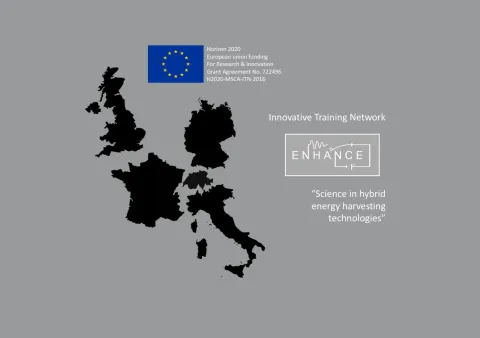
kW-flexiburst


The kW-flexiburst project aims to develop a breakthrough laser technology to enable high-precision, more flexible and high-performance industrial machining of materials.
In order to achieve these objectives, kW-flexiburst will develop a high-power, ultra-fast pulse laser capable of generating pulse trains whose intra-train, inter-train, pulse count and relative repetition rates can be arbitrarily adjusted while maintaining an average power of 1kW. This technology will be possible thanks to a brand new oscillator concept that will offer the opportunity to work at repetition frequencies at GHz. The performance in terms of laser flexibility will be demonstrated on dedicated industrial applications requiring high performance and high quality laser machining methods. These cover a wide range of industries, from the micro-structuring of metals, ceramics and other dielectric materials, to the drilling of hard substrates and the cutting of transparent materials. Each of them has the potential to bring about significant improvements or even breakthroughs in these industrial production sectors.
In order to develop this technology, kW-flexiburst has obtained €5.12 million in funding from the European Union under the H2020 Research and Innovation Programme for ICT 2018 under Grant Agreement No 825246. kW-flexiburst is part of the European Public-Private Partnership Photonics21 initiative.
The project began on January 1, 2019 for a period of 5 years, it will be finished on December 31, 2023. The project consortium includes the CNRS/Institut FEMTO-ST (France) in which Dr. François Courvoisier is the Project Coordinator, the University of Stuttgart (Germany), High Q Laser GmbH (Austria), University of Bordeaux (France), GFH GmbH (Germany), Daetwyler Graphics Precision (Switzerland) and Modus Research and Innovation (UK).
Contact : francois.courvoisier [at] femto-st.fr (François Courvoisier)
Website : https://www.kw-flexiburst.eu/
Twitter: kW-flexiburst [at] modus.ltd (@kW-flexiburst)
LinkedIn: linkedin.com/in/kw-flexiburst-project-298254182
